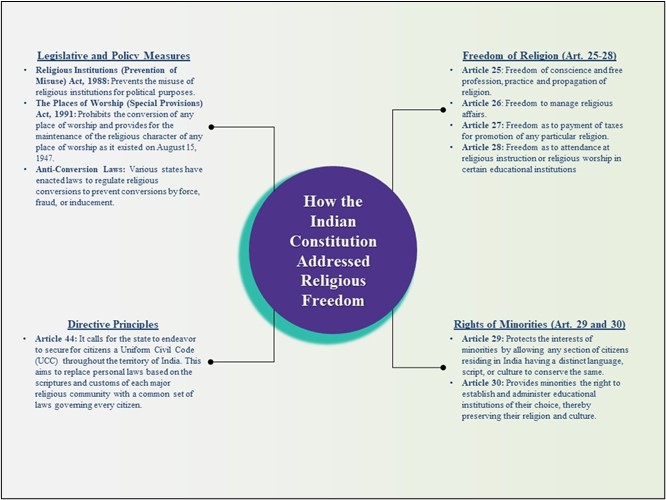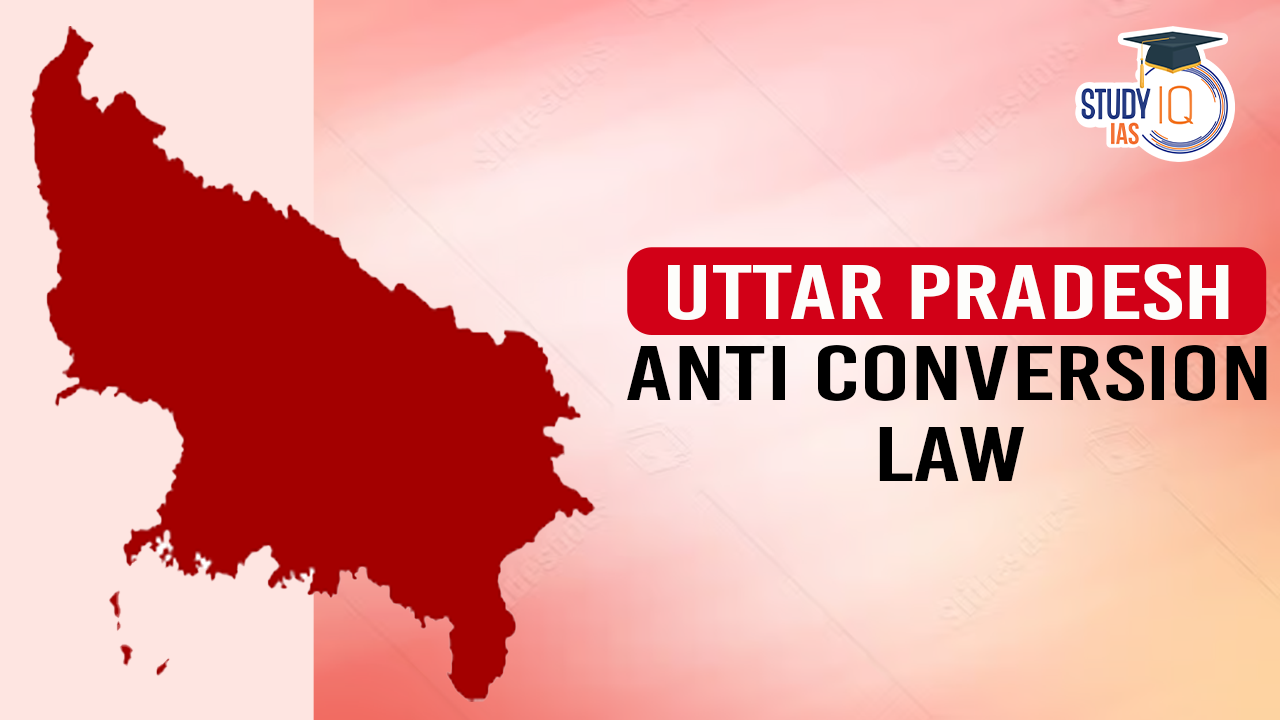Table of Contents
Context: The Uttar Pradesh Legislative Assembly passed the Uttar Pradesh Prohibition of Unlawful Conversion of Religion (Amendment) Bill, 2024. The amendment makes the original 2021 anti-conversion law more stringent and susceptible to misuse.
Reasons for the Amendment
- The Bill’s statement of reasons cited the need to make existing legislation “as stringent as possible.”
- Alleged involvement of “foreign and anti-national elements” in demographic changes due to unlawful conversion was a key factor.
- From January 1, 2021, to April 30, 2023, 427 cases were registered under the original Act.

Increased Penalties
- Previous Penalties:
- Minimum prison term: 1 year.
- Maximum prison term: 5 years.
- Fine: ₹15,000.
- New Penalties:
- Minimum prison term: 5 years.
- Maximum prison term: 10 years.
- Fine: ₹50,000.
- Penalties for Converting Minors, Women, or Scheduled Castes/Tribes:
- Previous: 2-10 years in prison, ₹25,000 fine.
- New: 5-14 years in prison, ₹1 lakh fine.
- New Offences:
- Securing “foreign” funds for unlawful conversion: 7-14 years in prison, ₹10 lakh fine.
- Causing fear of life or property, assault, force, or trafficking: Minimum 20 years in prison, up to life imprisonment.
Complaint Registration
- Original Act:
- Only “any aggrieved person” or close relatives could file a complaint.
- Police reportedly allowed FIRs by right-wing activists and unauthorised third parties.
- Amended Act:
- Allows “any person” to file an FIR related to any violation of the Act.
Bail Provisions
- Introduces stringent “twin conditions of bail” similar to the Prevention of Money Laundering Act and Unlawful Activities (Prevention) Act.
- All offences are cognisable and non-bailable, adjudicated by a sessions court or higher judicial forums.
- Revised Section 7:
- Accused cannot be granted bail without the public prosecutor’s opportunity to contest.
- Bail may only be granted if the court believes the accused is not guilty and unlikely to reoffend.
- The reverse burden of proof makes obtaining bail difficult until trial completion.
Comparison with Other States
- Other States with Anti-Conversion Laws:
- Odisha, Madhya Pradesh, Arunachal Pradesh (long-standing laws).
- Chhattisgarh, Gujarat, Himachal Pradesh, Jharkhand, Uttarakhand (recent laws).
- Notice Requirements:
- Madhya Pradesh: 60-day prior declaration to District Magistrate.
- Himachal Pradesh, Uttarakhand: 30-day prior notice.
- Uttar Pradesh: 60-day notice and police inquiry by the Magistrate.
- Complaint Filing:
- Other States: FIRs can only be filed by the aggrieved individual or immediate family.
- Bail Conditions: Other States do not impose “twin conditions of bail.”
- Punishments:
- Other States: Sentences between 2 to 10 years.
- Uttar Pradesh: Includes life imprisonment.
| Judicial Pronouncements on Conversion |
|
Future Implications
- The constitutional validity of the amendment is likely to be challenged before the top court.
- Existing petitions challenging the parent legislation and other anti-conversion laws are pending adjudication.
- In May, a Bench remarked that certain provisions of the 2021 Act might contravene Article 25 of the Constitution, which guarantees freedom of religion.


 Places in News for UPSC 2025 for Prelims...
Places in News for UPSC 2025 for Prelims...
 New Phase of Operation Chakra to Combat ...
New Phase of Operation Chakra to Combat ...
 Soyuz Aircraft: History, Design and Sign...
Soyuz Aircraft: History, Design and Sign...





















